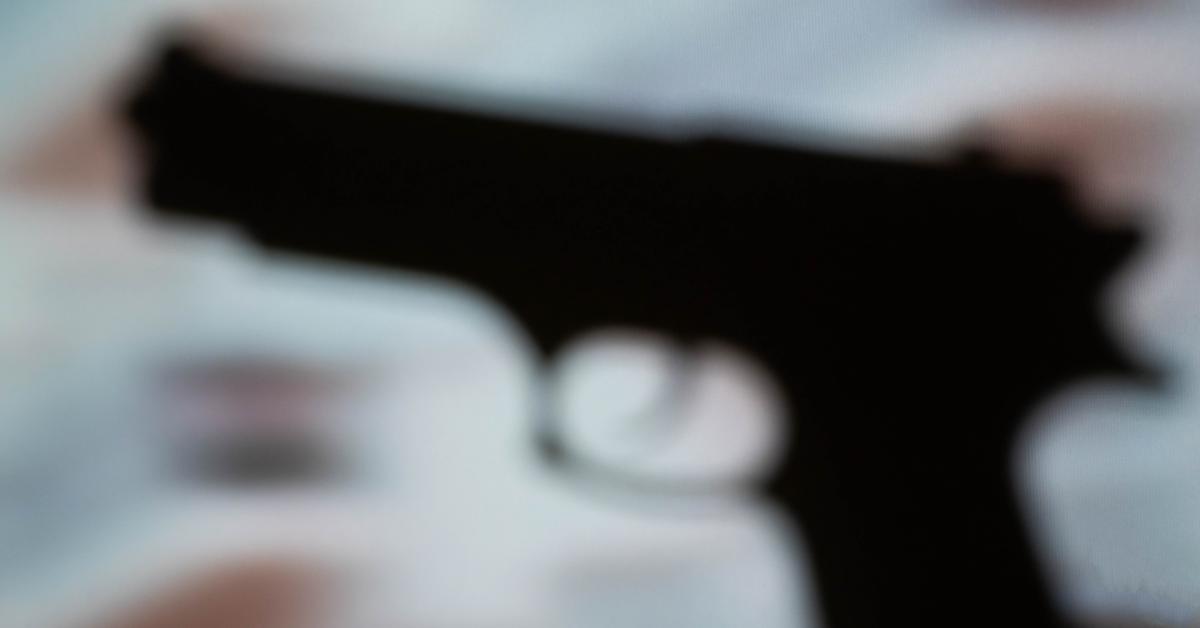We support our Publishers and Content Creators. You can view this story on their website by CLICKING HERE.

In less than two weeks, state legislators will convene for the 2025 legislative session, taking action on hundreds of bills, six of which they have already proposed around gun control.
There’s still plenty of time to propose more throughout the 105-day session, but three have come out of the state House of Representatives, with three more from the Senate. Democrats are behind all but two, with a Republican from each chamber floating their own.
Proponents say the bills could reduce gun violence and protect public safety, while critics might call them an overreach, further impeding their constitutional rights. The blue majority has passed numerous gun control measures over the past few years and will likely continue.
Senate Bill 5056
Rep. Keith Wagoner, R-Sedro Woolley, proposed Senate Bill 5056, one of two firearm-related measures to come from his party so far. The legislation follows a two-week delay in the Administrative Office of the Courts’ background check system in November.
The Washington State Patrol nearly faced lawsuits after being unable to conduct the checks during the delay; however, if the majority approves SB 5056, it would mitigate this by directing the WSP to process the work itself if the system becomes inaccessible for at least seven days.
According to the proposal, if the AOC’s system is down, the WSP would utilize the national instant criminal background check system and any relevant state records systems or other databases and resources that are still available.
Senate Bill 5098
Sen. Javier Valdez, D-Seattle, and Sen. Rebecca Saldaña, D-Seattle, proposed Senate Bill 5098, which would expand where it’s illegal to open-carry a firearm. If approved, it would expand the list to include public parks and recreational facilities where “children are likely to be present.”
According to the proposal, municipalities could designate which facilities children will likely frequent and post the appropriate signage at access points. The measure would also expand restrictions to include county fairs and buildings where government officials perform their duties.
State law already restricts open-carry in jails, law enforcement facilities, court-related facilities, certain mental health facilities, airports and other transit facilities, accredited zoos, and areas off-limits to individuals under 21 years of age.
The bill includes exemptions for law enforcement, military, and concealed carry permit holders. Violations could result in a gross misdemeanor, up to a $5,000 fine, 364 days in jail and potentially restrictions on future firearm possession for repeat offenders.
Senate Bill 5099
Sen. John Lovick, D-Mill Creek, and Senate Majority Leader Jamie Pedersen proposed Senate Bill 5099, which would require firearms dealers to meet additional security and compliance obligations.
The bill would update several pieces of language in existing law, clarifying requirements such as metal bars on doors and windows, adding sufficient interior lighting and authorizing law enforcement to access dealers’ security systems during an active investigation.
The measure also adds nearly two pages on when the WSP can revoke a dealer’s license. Another page requires the WSP to develop or approve online training courses for those working at licensed dealers. These courses must include at least 20 questions and require a 70% score to pass.
In addition to other licensing and compliance requirements, SB 5099 would restrict unlicensed “dealers” or hobbyists from transferring firearms or ammunition before obtaining a license. The law currently only restricts unlicensed dealers from selling or transferring any “pistol.”
The bill redefines dealers to include anyone who sells over 11 firearms or specific components annually.
House Bill 1118
Sen. Tarra Simmons, D-Kitsap, and Sen. Joel McEntire, D-Cathlamet, proposed House Bill 1118, which would restore convicted criminals’ right to possess a firearm. If approved, it would expand the eligibility for those convicted of certain offenses to petition to regain their rights.
According to the proposal, individuals convicted of felony sex offenses, Class A felonies or those with maximum sentences of at least 20 years would remain unable to petition; however, those with convictions, even repeated, of the Uniform Controlled Substances Act could.
Individuals convicted of narcotics violations, whether their sentence is 20 years or longer, since the USCA allows for sentencing outside of the standard range, could petition if approved.
Notably, Simmons, the prime sponsor of the bill, was previously convicted and sentenced to 30 months in prison for narcotics violations in 2011. She became the state’s first formerly incarcerated lawmaker in 2021 before the courts vacated her felony convictions in 2023.
House Bill 1132
Rep. Darya Farivar, D-Seattle, Rep. Tim Ormsby, D-Spokane, and Rep. Cindy Ryu, D-Shoreline, proposed House Bill 1132. The measure would limit “bulk” purchases and transfers of firearms and ammunition over any given month if approved.
The proposal doesn’t directly define “bulk.” Still, it prohibits dealers from selling or transferring more than one firearm and a maximum of 100 rounds of .50 caliber ammunition or 1,000 rounds of any other caliber to an individual within a 30-day period.
While 1,000 rounds sound like a lot, enthusiasts often buy in “bulk” to curb costs, as a typical range day could include shooting hundreds of rounds. If approved, individuals could face a $500 penalty upon first conviction, with a misdemeanor and gross misdemeanor for repeated violations.
House Bill 1139
Rep. Sam Low, R-Lake Stevens, proposed House Bill 1139, the only other firearm-related measure from his party so far. If approved, it would reclassify certain offenses as violent crimes and direct law enforcement to arrest potential offenders with probable cause.
According to the proposal, unlawful possession of a firearm in the first degree would be considered a “violent offense.” Reclassifying the crime allows the courts to enforce stricter penalties and longer sentences.
Another provision would retain vacated firearm convictions in an individual’s criminal history to calculate their “offended score,” which affects their sentence length.
Honorable Mention – “Tax on Sale of Ammunition & Firearms”
While not technically proposed, Sen. Noel Frame, D-Seattle, emailed peers last month offering various solutions to fill the state’s $16 billion shortfall.
All seven included in her email could generate over $15 billion in taxes over the next four years in addition to the billions that Gov. Inslee proposed days earlier to fill part of the hole.
One option included an 11% tax on ammunition, firearms and “parts,” in addition to any existing taxes. The state already imposes its 6.5% sales tax rate on top of local sales taxes and the federal government’s 10% to 11% excise tax on firearms and ammunition.
“Let’s spread that tax policy love around,” Frame emailed her peers in the Senate.

 Conservative
Conservative  Search
Search Trending
Trending Current News
Current News 





